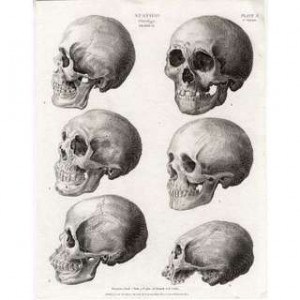Physician autonomy was sacrosanct; even enshrined in the Warsaw declaration.
Lately, it’s negotiable.
Ballooning costs of care and medico-legal risk make more doctors call for clinical practice guidelines (CPGs) to protect them, simplify complex decision making, and justify not ordering unnecessary tests and treatment when patients demand them.
Looking for something solid on which to make clinical decisions, physicians elevate evidence based medicine as a weapon against bureaucrats’ cost cutting and so-called expert opinions. But, the weapon also slices off physician autonomy.
Battle-lines form, with cost on one side, autonomy on the other, and evidence held hostage by whoever can show it best supports them. Patient centeredness, another hostage, usually hangs from physician banners. National associations weigh in; things get nasty.
When physicians call for CPGs, are they calling for limits to their autonomy?
Doctors usually say, “No. We can ignore the CPGs when indicated.”
If so, it seems CPGs afford little protection from lawsuit. If standard care is to ignore CPGs when indicated, how can doctors rely on CPGs to decrease medico-legal risk?
Having CPGs, but ignoring them at will, seems to be the worst of both worlds: loss of autonomy without decreased risk.
While the aroma of clinical autonomy lingers, any trace of operational autonomy in hospitals or large groups disappeared long ago. Even so, some physicians discussing system decisions still say:
Every physician should be involved in every decision
Every change idea should be shared at the earliest possible moment with every MD
Consensus with all physicians should be reached before any change
Are we in a post-physician-autonomy age? How does this impact professionalism? Is autonomy something that’s earned or protected? Is autonomy the wrong question?
Responsibility, accountability, and autonomy are inseparable. Some want to remove physician responsibility as a way to decrease physician influence; others want to remove responsibility as a way to decrease risk. Some insist on keeping accountability, but work to remove responsibility and autonomy.
Should we forget about physician autonomy and only ask what’s best for patients?


“Physician Autonomy” is far from my daily experience of fulfilling what other people expect or require of me. Much of this comes from third party insurance, government “ministries”, employers, lawyers, all reasonably hoping to protect their interests. “Patient-centered” brings to mind those who want to keep doing the same thing they’ve always done, but get different results (There must be a pill for that). CPG and Evidence actually shine as attempts to bring some science into the healthcare games. Perhaps naively, I hope they will help protect both the patient and myself by keeping me cognisant of either the evidence-based CPG I am following, or my rationale for doing something different. -philw-
Wow, great comment. I especially liked: “Patient-centered” brings to mind those who want to keep doing the same thing they’ve always done, but get different results (There must be a pill for that)!
I, too, love CPGs when I can find patients that match. Our love of evidence has given some outside observers the idea that medicine is nothing but matching evidence and patients. If that were the case, Watson, a supercomputer on staff at Memorial Sloan Kettering, could replace MDs. We need to figure out how to articulate how medicine is more than than matching best evidence with patients, and the ‘more’ isn’t just holding hands, either.
Thanks again!
Shawn